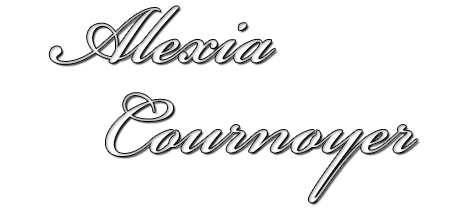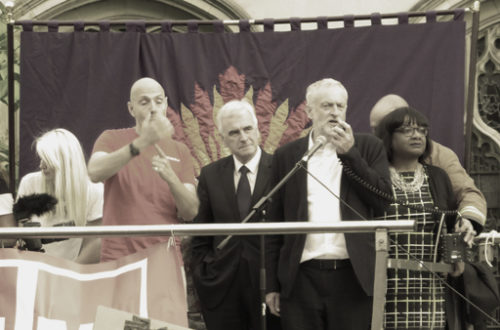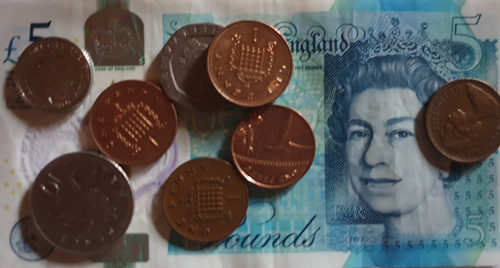Jeremy Corbyn, Anti-Semitism and The Labour Party
Until he was elected leader in 2016, anti-Semitism in labour were virtually non-existent. There have been no identified reports of Corbyn being anti-Semitic, yet somehow Jeremy Corbyn became identified as the biggest threat to Jewish people that the country had ever seen.
In April 2016, Corbyn appointed the former Liberty Director, Shami Chakrabarti, as Chair of an inquiry into anti-Semitism and other forms of racism including Islamophobia, within the party. The report was published in June 2016 and found that ‘[…] is not overrun by anti-Semitism, Islamophobia, or other forms of racism,’ but there had been an ‘occasionally toxic atmosphere’ and there was ‘too much clear evidence [of] ignorant attitudes’. The enquiry then detailed 20 recommendations for improvement, which included improving the disciplinary process. That recommendation was implemented in 2018 when Jennie Formby became General Secretary of the Labour Party, having succeeded Iain McNicol in April 2018 and began clearing the backlog of cases that had build up during Iain McNicol’s tenure as General Secretary.
Soon after this, the MP Ruth Smeeth made an accusation of anti-Semitism after a member accused her of working ‘hand-in-hand’ with the Daily Telegraph and other right wing papers. Smeeth then went on to complain that Corbyn didn’t publicly support her and then claimed that there were no safe spaces for Jews in the party. She made a formal complaint and despite the member stating he didn’t know she was Jewish, he was expelled.
Then there was a cross-party Home Affairs Select Committee inquiry into anti-Semitism in the UK conducted a wider investigation of anti-Semitism and described the Chakrabati Inquiry as ‘compromised’, criticised labour’s handling of anti-Semitism in the party, yet their conclusion was ‘…there exists no reliable, empirical evidence to support the notion that there is a higher prevalence of anti-Semitic attitudes within the Labour Party than any other political party.’
In 2017, the party amended the rules to make hate speech, including anti-Semitism, a disciplinary matter and used the IHRA definition.
In 2018 The NEC (National Executive Committee) backed a change to the code of conduct to adopt all the examples included by the International Holocaust Remembrance Alliance (IHRA) provisions . During the meeting, Corbyn wanted to add a statement that supported the right to free speech with regards to Palestine and was forced to withdraw it. The statement read:
“Israel, its policies or the circumstances around its foundation as racist because of their discriminatory impact, or to support another settlement of the Israel-Palestine conflict”.
Labour Friends of Israel (LFI) and Dame Margaret Hodge came out against the statement, the Board of Deputies president Marie van der Zyl called Corbyn and anti-Semitism, Labour Against Antisemitism said the move ‘appears to be about protecting the freedom of racists to present vile views’.
Later backbenchers resigned citing anti-Semitism as a reason, former chief rabbi Lord Sacks compared the Labour leader to Enoch Powell and particularly in the last election period, articles claiming Corbyn was an anti-Semite were being published almost daily.
According to the Jewish Chronicle, Corbyn’s crime is that he only opposes what the Chronicle calls ‘“classic” antisemitism inspired by the far right.’ and fails to oppose what the Chronicle calls left wing anti-Semitism ‘This left-wing, Labour antisemitism updates all the old tropes of classic antisemitism by, amongst other things, overlaying them onto the Israel-Palestine conflict.’ Of course The Chronicle doesn’t give any examples of how anti-Semitism is overlaid in discussions about the Israeli occupation or war crimes in Palestine to help clarify what they meant.
With mind bending logic, it appears you can’t (rightly) say it’s Jews who are behaving badly towards, and in, Palestine, it’s Israel but then there are Israeli’s who say that it’s not them but the Israeli government doing it with the political ideology of Zionism. However, referring to Zionists is now anti-Semitic (even though it was a group called Zionists who convinced the UK government to support a Jewish homeland in Palestine) and of course Netanyahu claimed he speaks on behalf of all Jews, which brings us back to the first claim, so you can’t talk about Israel’s behaviour in Palestine at all as that’s anti-Semitic! What is also anti-Semitic is if you follow Netanyahu’s line and talk about non-Israeli Jews supporting Israel.
This is where the charge of anti-Semitism is almost impossible to defend for anyone who speaks about the Palestinian issue. Once upon a time anti-Semitism was just about people who adhered to a specific religion (what is apparently ‘classic’ anti-Semitism), it has now been widened by certain groups to include Israel (‘left wing’ anti-Semitism). With mind bending logic, it appears you can’t (rightly) say it’s Jews who are behaving badly towards, and in, Palestine, it’s Israel doing but then there are Israeli’s who say that it’s not them but the political ideology of Zionism. However, referring to Zionists is anti-Semitic and of course Netanyahu claims he speaks on behalf of all Jews, so you can’t talk about Israel’s behaviour in Palestine as that’s anti-Semitic! These semantic arguments essentially close down any rational discussion of the behaviour of Israel towards Palestine as the content of the discussion is drowned out by cries of anti-Semitism, with the consequential reluctance of Palestinian supporters to continue to speak about Palestine for fear of being branded anti-Semitic yet again.
The only way to work around it is to ask these Jewish groups what terms are allowed to be used. The problem with that is that the conflating of Judaism with support for Palestine and calling it anti-Semitic appears to be confined to the more right wing groups, even
In July 2018, the Israeli parliament passed a bill called The Basic Law: Israel as the Nation State of the Jewish People, which defines Israel first and foremost as a Jewish state. Among its 11 provisions, it describes Israel as “the national home of the Jewish people” and says the right to exercise national self-determination there is “unique to the Jewish people”. Benjamin Netanyahu said “Israel is the nation state of the Jewish people, and respects the rights of all of its citizens.” but 20% of its population (not including the occupied territories) are non Jewish Arabs and therefore excluded from exercising any right to self determination.
In Sept 2018 at the height of the discussion around Labour’s adoption of the IHRA,
He also said
There was hardly any political controversy over how antisemitism should be defined. A broad consensus understanding of what it was prevailed – in the organized Jewish community, among mainstream political parties, across countries in the West. Once that consensus had clearly broken down by the first years of the twenty-first century, almost entirely over the issue of Israel-Palestine and how far anti-Israel rhetoric can be defined as antisemitism – and dubbed the ‘new antisemitism’ – the politicisation of antisemitism was taken to another level. Until that time, Israeli governments had not always made engagement with the problem of antisemitism for diaspora Jews a top priority. Zionism and the establishment of the state were all about overcoming antisemitism. To become too involved, certainly publicly, in this diaspora problem would have meant admitting that in one of its key aims, Zionism failed. But when Israel was placed at the centre of the antisemitism issue, Israeli state policy changed. Leading the Jewish fight against antisemitism, under the banner of promoting the notion of the ‘new antisemitism’, became a core strategic task of government.
This is the crux of the matter. Any support for Palestine can, and will, be called out under this banner of ‘new anti-Semitism’ or ‘left wing anti-Semitism’. None of those people who cry anti-Semitism at any criticism of Israel’s behaviour in Palestine ever give their reasons for believing it to be anti-Semitic and they are uncritically accepted and amplified by a media that has it’s own reasons for attacking the speaker. Even Bernie Saunders, a Jewish 2020 US presidential candidate who lost family in the holocaust and has worked in and supported Israel, has been called anti-Semitic and is facing an almost overwhelming barrage of anti-Semitic claims in the media. Whether or no he can refute and silence these propagandists remains to be seen.
https://www.bbc.co.uk/news/world-middle-east-44881554
https://www.timesofisrael.com/final-text-of-jewish-nation-state-bill-set-to-become-law/
https://en.wikipedia.org/wiki/Jennie_Formby
https://en.wikipedia.org/wiki/Chakrabarti_Inquiry
https://www.thejc.com/comment/analysis/jeremy-corbyn-fact-and-fiction-stephen-pollard-1.494040
https://www.channel4.com/news/factcheck/factcheck-antisemitism-political-parties





